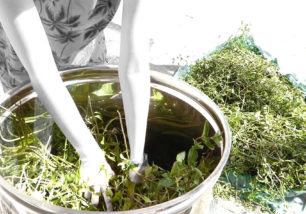MINT ESSENTIAL OIL: USES AND PROPERTIES
aromatic oilaromatic plantsbalsamic actionconcentrationdigestive actionessential oilmentholsteam distillation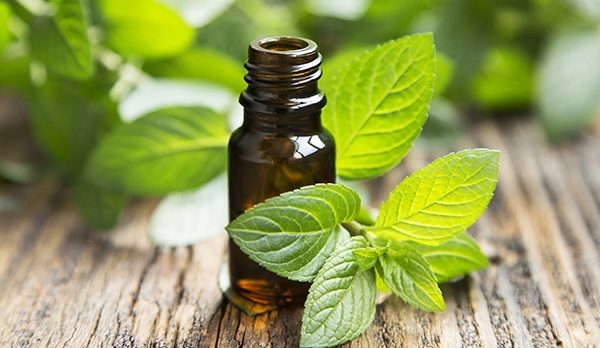
The name “Mint” has a mythological derivation: Mintha was a nymph, daughter of the river god Cocito. She was loved by the god Hades but Persephone was jealous and transformed her in a humble, insignificant plant. But not even Persephone was able to deprive Mintha of her perfume.
Mint was already used among the Egyptians, who prepared resinous ointments for conservation of corpses with the plant juice. Ancient Greeks and Jews used it as a perfume, while ancient Romans used it in wine for its flavor.
The mint mentioned above was not our Peppermint, but mint of different species, with similar properties.
Peppermint (Mentha x piperita) is in fact an hybrid which was first obtained in 1750.
Nowdays, Peppermint essential oil is used in the culinary field to flavor food or beverages and in the cosmetic and pharmaceutical field, where it is used as a cooling and anti-pruritic agent.
The essential oil is obtained via steam distillation, from stems and flowering tops and it can be used for many different purposes.
USES AND PROPERTIES:
Psyche: Diffusing peppermint essence in a room can help focus and mental activation, decreasing fatigue. It is perfect for those occupations and activities where focusing is essential. Thanks to its analgesic activity it is also useful against headaches caused by stress.
Well-being: Thanks to its balsamic, mucolytic and antimicrobial properties, the essence is useful in cases of cold, flu and fever.
To reduce the symptoms of sinusitis and congestion, add a few drops of E.O. in a pot of boiling water or on a tissue and inhale.
Peppermint essential oil also helps the gastrointestinal system. It has antispasmodic (muscle relaxing), choleretic (improves biliary secretion) and carminative properties, improving the digestion in dyspeptic subjects with colic, cramps, flatulence and nausea.
The essence works by reducing bloating, thanks to both its relaxing activity on the esophageal sphincter and its antimicrobial and anti-fermentative properties, which reduce the gas volume in the intestine.
By the way, subjects suffering from gastritis or gastric ulcers should not consume the essence, since it can increase the gastric secretion and thus worsen the symptoms.
Dermatology: The essential oil can be used in combination with other essences to improve acne, dermatitis, toothache and urticaria.
Menthol, one of the main constituents of peppermint essential oil, can be applied on skin or mucous membranes for its refreshing and anesthetic effects. Its vasoconstrictor activity, immediately followed by vasodilation, causes a rubefacient effect and a weak local anesthesia, which can alleviate muscle pain, sciatica, arthritis or other aches in general, including headaches or neuralgia.
Adding 1 or 2 drops of essential oil to the water in the bathtub while bathing can be helpful against itching or skin irritation caused by dermatitis and mycosis.
It is a good E.O. for footbaths in case of tired, swollen feet or simply for a refreshing and energizing effect. The E.O. can also be diluted in almond or jojoba oil to massage legs and feet. As an antiseptic, refreshing and deodorizing, it can be added to products for the oral hygiene like mouthwashes and toothpaste, also in homemade-version.
Food: Peppermint essential is used as a flavoring agent in many products: chewing-gums and sweets, alcoholic and non-alcoholic drinks and beverages, pharmaceutical preparations like cough syrups and other remedies for cold or digestive problems.
Its characteristic taste and its refreshing aroma can also be used for the preparation of chocolate sweets, with which Peppermint goes very well.
It is a perfect ingredient for drinks and cocktails. Adding a few drops of peppermint E.O. to vodka or wine will result in a great base for the preparation of original aperitives.
The digestive and stomachic effect of the E.O. can be used to increase the appetite.
Another interesting utilization could be adding the essential oil to aromatic salt and use it to flavor the salad, giving it a fresh and original taste.
Remember that essential oils are extremely concentrated compounds and even a small amount may cause side effects.
For internal use always consult an expert or your doctor.
Be careful in case of topical application too: essential oils contain small-sized molecules, easily absorbed by our skin. An excessive amount may cause dermatitis. Do not use in case of injured skin and avoid contact with mucous membrane and eyes because they may cause irritation.
More information on:
Peppermint (Mentha x piperita): cultivation, transformation and use
Other articles that may interest you:
How to make homemade essential oil
Ylang ylang essential oil: uses and properties
Essential oil for the intestine
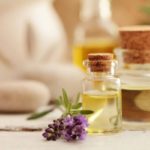 ESSENTIAL OILS: WELLNESS IN HOME
ESSENTIAL OILS: WELLNESS IN HOME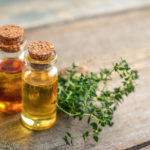 THYME ESSENTIAL OIL: USES AND PROPERTIES
THYME ESSENTIAL OIL: USES AND PROPERTIES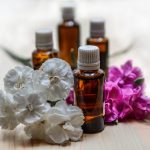 AROMATHERAPY: HOW TO CHOOSE AN ESSENTIAL OIL
AROMATHERAPY: HOW TO CHOOSE AN ESSENTIAL OIL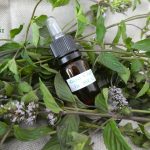 HOW TO DISTILL MINT
HOW TO DISTILL MINT AROMATHERAPY: HISTORY
AROMATHERAPY: HISTORY POTATO CHIPS WITH ROSEMARY AROMATIC WATER
POTATO CHIPS WITH ROSEMARY AROMATIC WATER ROSEMARY ESSENTIAL OIL: CULTIVATION AND PRODUCTION
ROSEMARY ESSENTIAL OIL: CULTIVATION AND PRODUCTION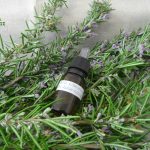 HOW TO DISTILL ROSEMARY
HOW TO DISTILL ROSEMARY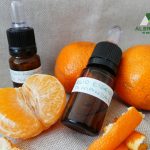 HOW TO DISTILL TANGERINE PEEL
HOW TO DISTILL TANGERINE PEEL NEEM OIL, FROM THE PLANT OF GOOD HEALTH
NEEM OIL, FROM THE PLANT OF GOOD HEALTH HERBAL TEAS, INFUSIONS AND DECOCTIONS: THE DIFFERENCES AND METHODS OF PREPARATION
HERBAL TEAS, INFUSIONS AND DECOCTIONS: THE DIFFERENCES AND METHODS OF PREPARATION HOW TO MAKE HOMEMADE ESSENTIAL OILS
HOW TO MAKE HOMEMADE ESSENTIAL OILS HEALTHY HAIR WITH AROMATIC PLANTS
HEALTHY HAIR WITH AROMATIC PLANTS THE GOOD NIGHT PLANTS
THE GOOD NIGHT PLANTS OLEOLITES: THE POWER OF HERBS IN OIL
OLEOLITES: THE POWER OF HERBS IN OIL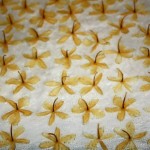 ENFLEURAGE: ANCIENT TECHNIQUE TO EXTRACT ESSENCES FROM FLOWER PETALS
ENFLEURAGE: ANCIENT TECHNIQUE TO EXTRACT ESSENCES FROM FLOWER PETALS ESSENTIAL OILS AND ECOLOGICAL DETERGENTS FOR HOUSE CLEANING
ESSENTIAL OILS AND ECOLOGICAL DETERGENTS FOR HOUSE CLEANING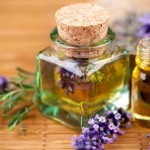 OIL FOR STRENGTHENING HAIR
OIL FOR STRENGTHENING HAIR SCENTED BAGS WITH DRIED HERBS AND ESSENTIAL OILS
SCENTED BAGS WITH DRIED HERBS AND ESSENTIAL OILS PURIFYING AND CLEANSING HERBAL TEAS DO-IT-YOURSELF
PURIFYING AND CLEANSING HERBAL TEAS DO-IT-YOURSELF LEMONGRASS: ESSENTIAL OIL TO FIGHT TUMORS
LEMONGRASS: ESSENTIAL OIL TO FIGHT TUMORS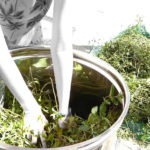 MINT ESSENTIAL OIL: CULTIVATION AND PRODUCTION
MINT ESSENTIAL OIL: CULTIVATION AND PRODUCTION CITRUS FRUITS AND ALZHEIMER’S DISEASE: NEW DISCOVERIES
CITRUS FRUITS AND ALZHEIMER’S DISEASE: NEW DISCOVERIES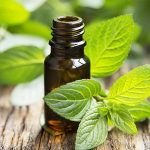 MINT ESSENTIAL OIL: USES AND PROPERTIES
MINT ESSENTIAL OIL: USES AND PROPERTIES
